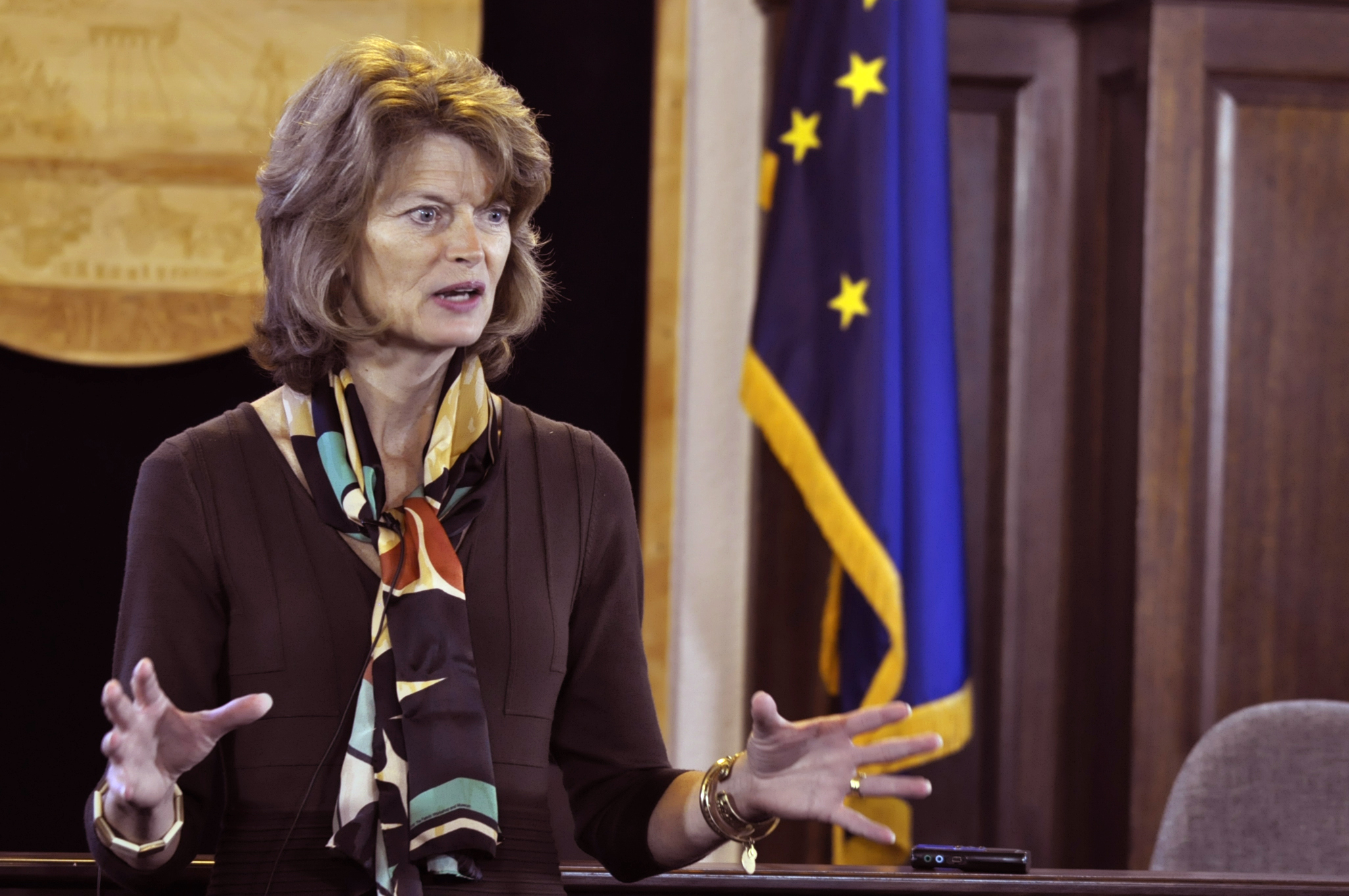U.S. Senator Lisa Murkowski is in Alaska holding field hearings as the chair of the Senate Energy and Natural Resources Committee. Monday, she invited leaders from the state’s energy, mining and labor sectors to offer their perspectives on how the federal government is doing its job managing public lands. Most of the testimony expressed frustration with federal regulations and how they are implemented.

Nobody seemed happy with the status quo Monday, inside or outside the Fairbanks Pipeline Training Facility where Senator Lisa Murkowski conducted her field hearings. Outside, 15 or 20 protesters bore placards urging action on climate change and weaning the economy off fossil fuels. Eric Schaetzle says more is in play than oil patch jobs and dwindling dollars in the state’s coffers.
“This is a health issue,” Schaetzle said. “A social justice issue. There’s a lot more than just our economy at stake here. There’s the future generations. We’re really talking about what sort of legacy we want to leave.”
Schaetzle was signed up to offer testimony at the hearing. But inside Senator Murkowski made it clear the focus of the meeting was to hear from industry and labor leaders, and she wasn’t happy with the way bureaucracy and protesters hampered industry and commerce.
“This is a time when we should be opening our lands and waters to responsible development,” Murkowski said. “Streamlining the permitting process, and working to ensure that protests and litigation do not hold us back.”
Murkowski’s point was taken up and echoed by mining, energy and labor executive as well as Alaska Native representatives who offered comments. One recurring frustration expressed by industry leaders like Lorali Simon of Usibelli Coal Mine aimed less at regulations and more at those who enforced them.
“It is true that in order for any of us to do our jobs, we need a stable regulatory environment,” said Simon. “We just want to know what the rules are so that we can play by the rules.”
Also looming over the hearing, as Senator Murkowski acknowledged in her remarks, was the knowledge the fall’s presidential election could radically alter the regulatory landscape.




